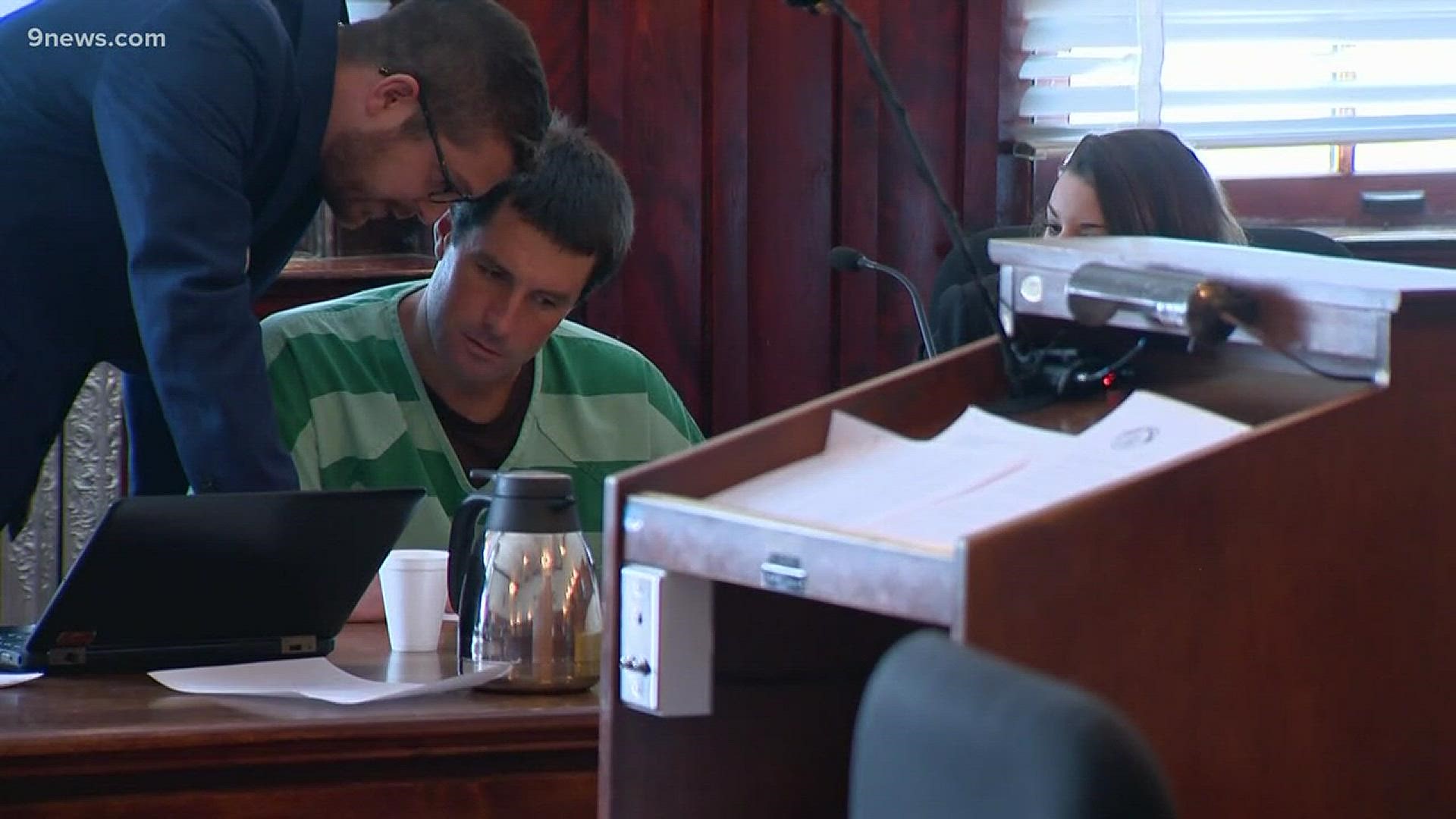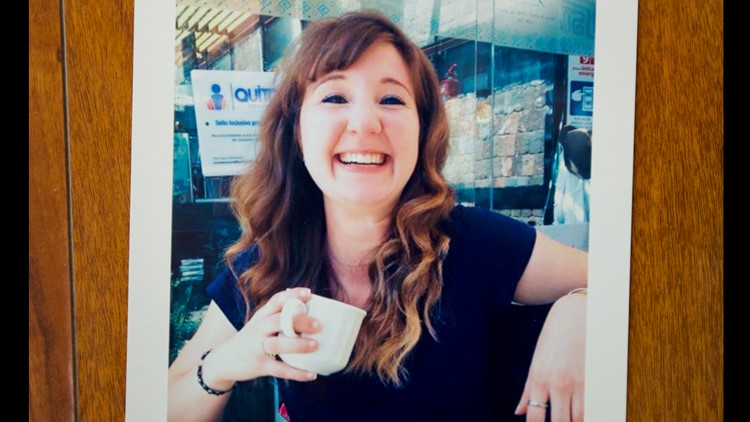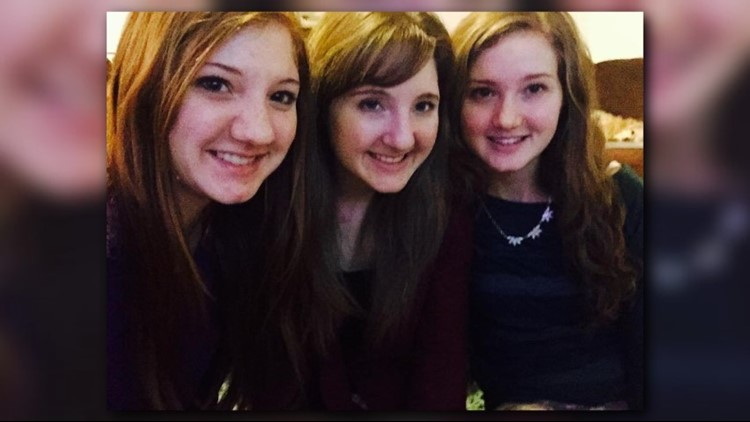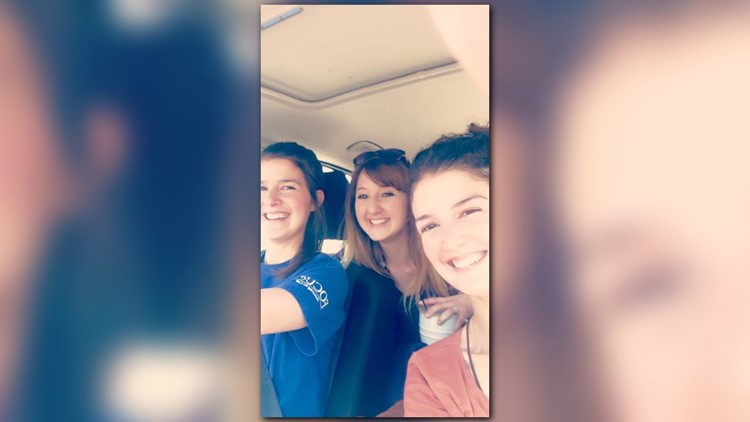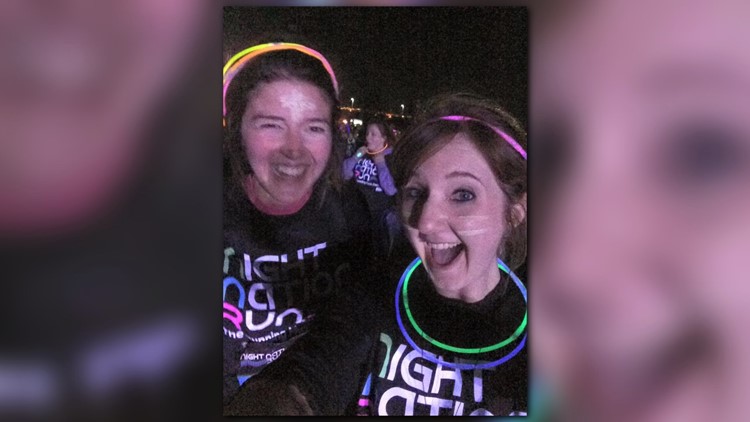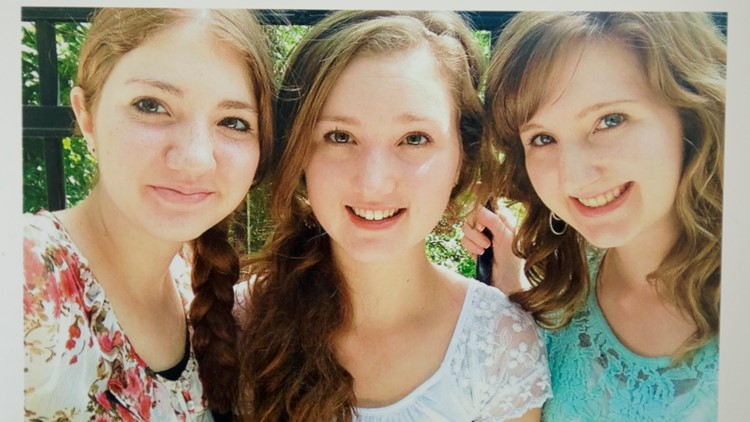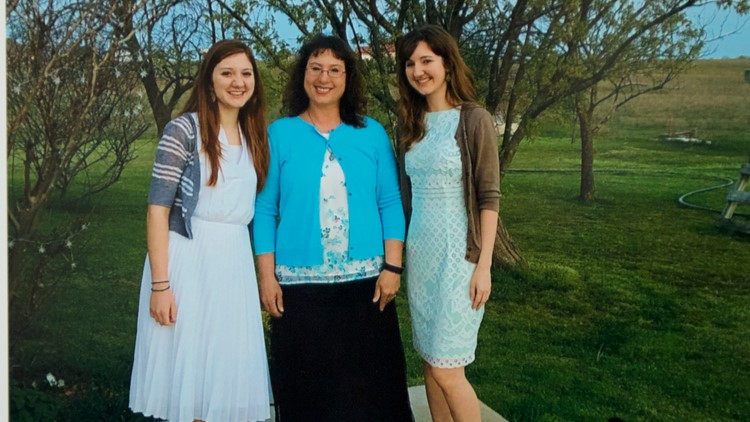Editor’s Note: All this week on 9NEWS and 9news.com is an in-depth look at repeat drunken drivers, the tragedies they’ve been blamed for, and how a new state law intended to crack down on them is – or isn’t – working.
KUSA - Randy and Linda Wimmer had 200 miles to go, cutting across U.S. 287 outside Memphis, Texas, when the phone buzzed and their lives were altered forever.
It was Sept. 30, 2018, and they were on their way home after visiting their son in Albuquerque. The call was about their 25-year-old daughter, Angela, a technician at an optical center in Lakewood.
“The policemen said that she'd been in a car accident, that she was in surgery and she was having brain surgery,” Linda Wimmer said as she and Randy sat in their rural home on the plains northwest of Dallas and talked about the oldest of their three daughters, the second of their children.
None of it made sense to them. Angela had just bought a new Mazda sedan the day before – her first brand new car – and exchanged playful text messages with them earlier that morning. Angela, they knew, was headed to mass. What happened?
PHOTOS: Angela Wimmer
ORIGINAL COVERAGE | Man accused in crash that killed a young woman had prior DUI convictions
At a gas station, Randy and Linda tried to figure out how to get to Denver. Should they drive? Fly? What?
Then the phone rang again. This time it was a doctor.
“He said that she had passed away,” Linda said. “That was the most horrible – I think that's the worst thing that has ever happened to me in my entire life.”
Linda and Randy Wimmer would drive through the night to get to Denver. They would find themselves overwhelmed with grief, their daughter killed in a crash that police and prosecutors blamed on a man with six prior convictions for drinking and driving. A man, according to court documents obtained by 9Wants to Know, who had a blood-alcohol level more than four times the legal limit 90 minutes after the crash.
***
Repeat drunken drivers are nothing new in Colorado – a man named Richard Strock killed his ex-wife in a 2005 crash along Interstate 70. It was his 19th drunken driving arrest, according to court documents and Colorado Bureau of Investigation records.
A four-month 9Wants to Know investigation, which included the examination of police and court records from multiple jurisdictions, found that a similar pattern played out for Grudznske in DUI case after case: He was allowed to plead guilty to the lowest possible crime while other charges, such as driving with a with a revoked license or driving without insurance, were dismissed.
When he failed to follow through on the requirements of those deals – by going to alcohol classes, performing public service or staying out of trouble – he was given chance after chance, those documents show. An examination of every criminal court case involving Grudznske over nearly two decades found 10 instances when he could have had his probation revoked for failing to follow the terms of a plea deal – but it wasn’t.
When probation finally was revoked in one case, the judge gave him a do-over – starting the same requirements anew.
In another case, a judge finally just canceled his probation after he didn’t complete it, then lumped a jail sentence together with what he was serving in another case.
***
The Sunday morning that was Sept. 30 was warm and sunny in the Denver area. Angela’s new Mazda still had some of the factory tags on it as she headed out to church – she was a devout Catholic, and Sunday morning mass was part of her routine.
She did not know Todd Grudznske, a 47-year-old tree trimmer who came to Colorado from Wisconsin, although they lived less than a mile from each other. Both of their homes were along Miller Street west of Kipling Street.
That same morning, Grudznske headed out, wearing a Green Bay Packers jersey, and stopped at three separate bars, according to court documents and the court testimony of Lakewood police officers Jim Moffat, Jason Ezell, Jeromy Rohling and Gregory Strandberg.


Strangberg testified at Grudznske’s preliminary hearing that his morning began sometime around 9 a.m. at Swig Tavern, 11810 W. Colfax Ave., where investigators allege that over approximately an hour he downed a beer and three shots of Rumple Minze. Then, according to Strandberg, he headed off to another bar, Tavern on 26th, 10040 W. 26th Ave., which is operated by his landlord, according to Colorado Liquor Enforcement Division records. He didn’t stay long, but while he was there he had a beer and a shot of tequila, Strandberg testified.
Grudznske arrived at Misfits Sports Bar & Grill, 11475 W. Colfax Ave., at 10:57 a.m. Three minutes after walking in, he ordered his first beer, according to Strandberg. A little later, a shot of whiskey. Then another beer. Then more shots. At one point, he sent over a round of shots to other Packers fans; Strandberg said investigators believe Grudznske may have done shots with that group.
At 12:39 p.m., Grudznske stood and walked out. The tally at Misfits: two beers, and at least five shots of whiskey – Wild Turkey and Jameson, Strandberg testified.
His total consumption over the previous 3½ hours, as alleged by Lakewood police: four beers and nine shots (three Rumple Minze, one tequila, five whiskey).


Around the same time, Angela Wimmer was headed south on Kipling toward her home. She was a couple minutes away when she stopped at a red light at Colfax Avenue. She was the only southbound vehicle at the light.
Police would later conclude that Grudznske’s gold Chevy pickup, its bed overflowing with tree limbs, was headed down Kipling at between 68 and 71 mph before its speed dropped as it approached Colfax, Rohling, one of the officers, testified in court. Suddenly, the truck plowed into Angela’s car – investigators put the truck’s speed at the moment of impact at between 58 and 64 mph, Rohling testified. The impact was so powerful it launched Wimmer’s car into the intersection – just a quarter second after the crash, she was careening across the pavement at 44 mph.
There were no pre-impact skidmarks left by the truck, according to court documents.


Angela’s Mazda smashed into another vehicle, and two more cars got caught up in the chain-reaction wreck.
Up the road, Becky Shorey was approaching the intersection, headed to a home center.
“I saw a bunch of smoke, steam, something, up ahead just past the intersection, which caught my attention,” said Shorey, a teacher and former EMT. “And then I looked and I saw cars in the intersection; everybody was stopped.
“I ran up on the woman's car first and looked inside, but she was in such a position, I didn't see her immediately, and I asked the person there – I was like, where is the driver?” Shorey said. “And what I heard is, she got out. And I was like, whoa.”
Later, Shorey would realize that Angela was still in the car and that the bystander probably actually said “she's passed out.”
Then she went to the pickup, where a man in a Packers jersey was at the wheel, bloody, and appeared to be attempting to get away.

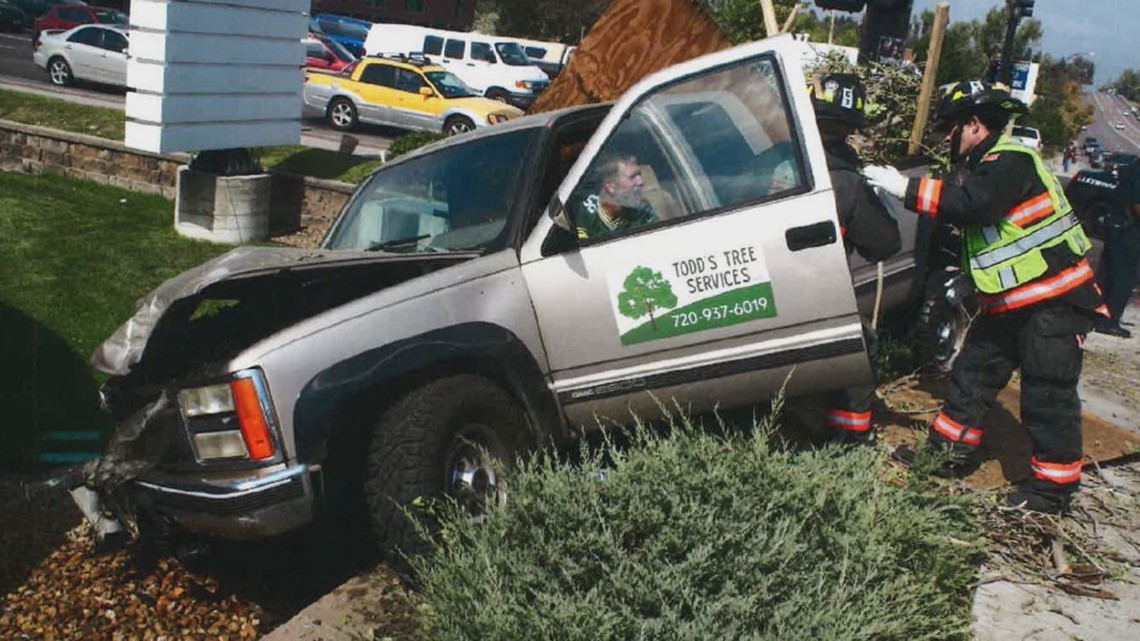
“The truck was high-centered on the wall by the McDonald's, and he had put the truck into reverse and was actively trying to back off of the scene. And so I yelled for him through the closed window, closed door, to put it into park, turn off the key, and he refused.”
Eventually, she left, but not before stopping for a moment where paramedics were working on Angela.
“I knew that she was in real trouble and she would be lucky to survive,” Shorey said.
Angela died at the hospital, a little more than two hours after the crash.
***
Grudznske’s six prior drinking and driving convictions made him a candidate for a felony DUI charge – a new law enacted in 2015. It makes it a felony to be convicted of drinking and driving more than three times.
In addition to his six prior convictions, 9Wants to Know found three other instances in which Grudznske was suspected or reported to have been drinking and driving – but he wasn’t charged with DUI in any of those cases.
There was a 2004 case in Lakewood in which an officer pulled him over because his license plates weren’t valid, later learning that his license was revoked because he’d been deemed a habitual traffic offender.
A copy of the ticket was obtained by 9Wants to Know. On it, the officer wrote: “As Mr. Grudznske spoke, I detected an odor of a alcoholic beverage on his breath. I asked if he had been consuming alcoholic beverages. Mr. Grudznske replied, ‘No.’ As I got Mr. Grudznske out of his vehicle, he admitted to consuming alcoholic beverages … Mr. Grudznske stated, 'I lied because I didn’t want to go to jail.'”

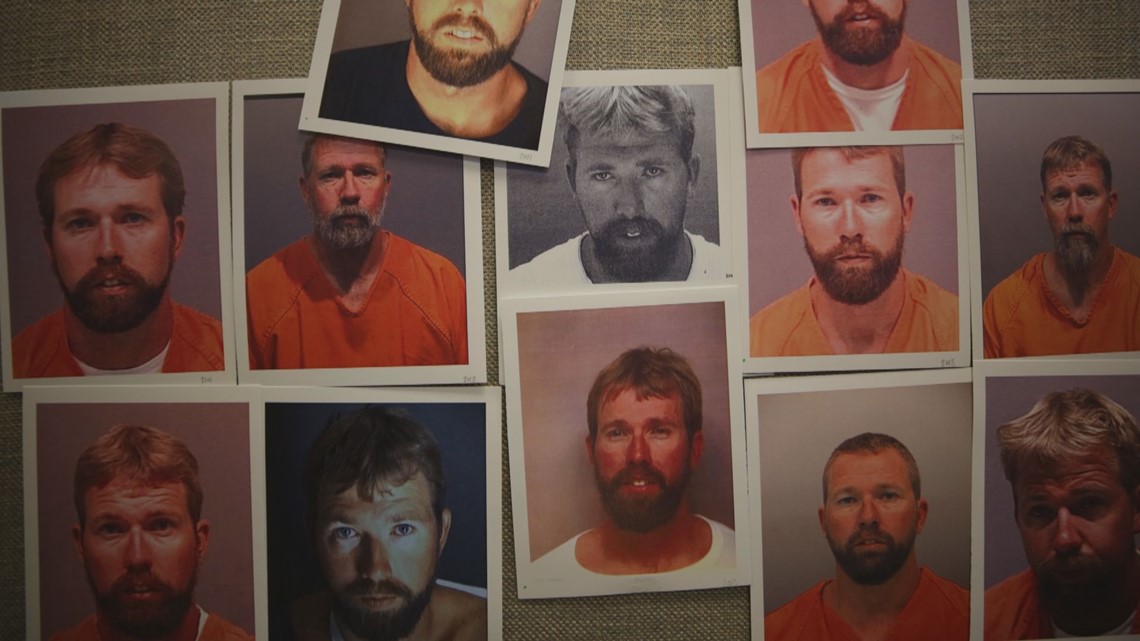
Most records in the case have been destroyed, and it is not clear whether the officer asked Grudznske to perform roadside tests or give a sample of his blood or breath to see if he was impaired or intoxicated. John Romero, Lakewood police spokesman, said he could not answer questions about how the case was handled because there aren’t documents to detail what happened.
There was the case in 2011 in which a woman called 911 and reported an erratic driver near Kipling Street and 44th Avenue. She provided a license number, and officers traced it to the woman Grudznske was married to at the time, going to the couple’s home to investigate.
When they arrived, according to a case report obtained by 9Wants to Know, Grudznske’s wife told officers “when Todd pulled into the driveway she could tell he was intoxicated, and when he got out he was stumbling.” Grudznske’s wife also said “He’s wasted,” according to the report, which also noted her concern that with multiple previous DUIs “she was worried that eventually he was going to hurt someone.”
But when officers questioned Grudznske, he claimed he hadn’t had anything to drink until after he’d gotten home. The man he was with that day denied they’d been drinking.
In the end, police charged Grudznske with evading an interlock device – his own vehicle had the machine installed that required him to pass a breath test before it could be started, something he was required by a court to do. His wife’s car didn’t have the device installed.
There was also a case in July 2017 where a man called police to report that a couple was fighting in front of his home. The couple was Grudznske and his estranged girlfriend, according to Jefferson County Sheriff’s Office reports. The woman told officers that they’d been at a bar drinking and were returning to her house – with Grudznske at the wheel – when he physically assaulted her. By the time the officers arrived, he was nowhere to be found.
He was arrested in that case more than a week later.

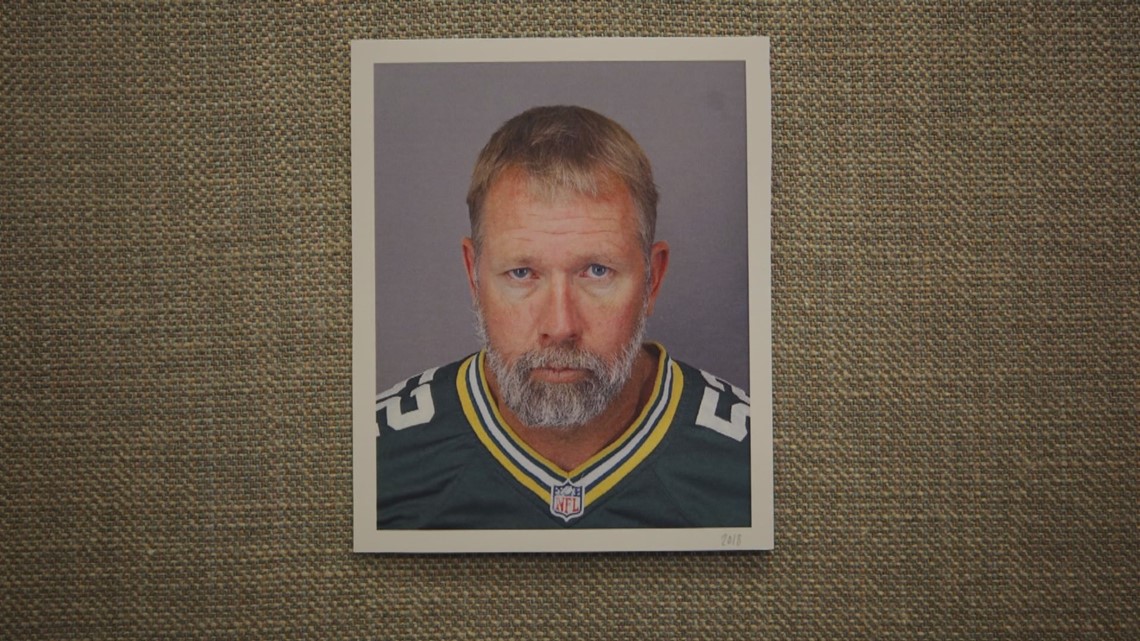
In the wake of the Sept. 30 crash, Grudznske faces charges of first-degree murder, three counts of attempted first-degree murder, first-degree assault, vehicular homicide-DUI, vehicular homicide-reckless driving, three counts of attempted first-degree assault, felony DUI, violation of a protection order, and reckless driving as well as two counts of committing a crime of violence, a sentencing enhancer.
His blood-alcohol level, according to court documents obtained by 9Wants to Know, was .341 at 1:49 p.m. – a little more than an hour after the crash. That’s more than four times the level of .08 at which a motorist in Colorado is considered intoxicated.
Grudznske has pleaded not guilty to all charges and is being held without bail. He is scheduled to go on trial June 3.
In addition, prosecutors have begun the process of trying to revoke his probation in the 2017 domestic violence case on the allegation that by drinking he violated the requirements imposed in his plea deal.
Grudznske denied a 9NEWS request for an interview.
***


Becky Shorey, who came upon the crash in Lakewood moments after it happened, is bothered by the idea that Grudznske was still on the road with his history of DUI convictions.
“I've struggled a lot with that accident,” she said, “just because with 6 priors … why? You know, why is he driving? I don't understand that. Just doesn't make sense to me.”
It’s a question that Randy and Linda Wimmer wrestle also with.

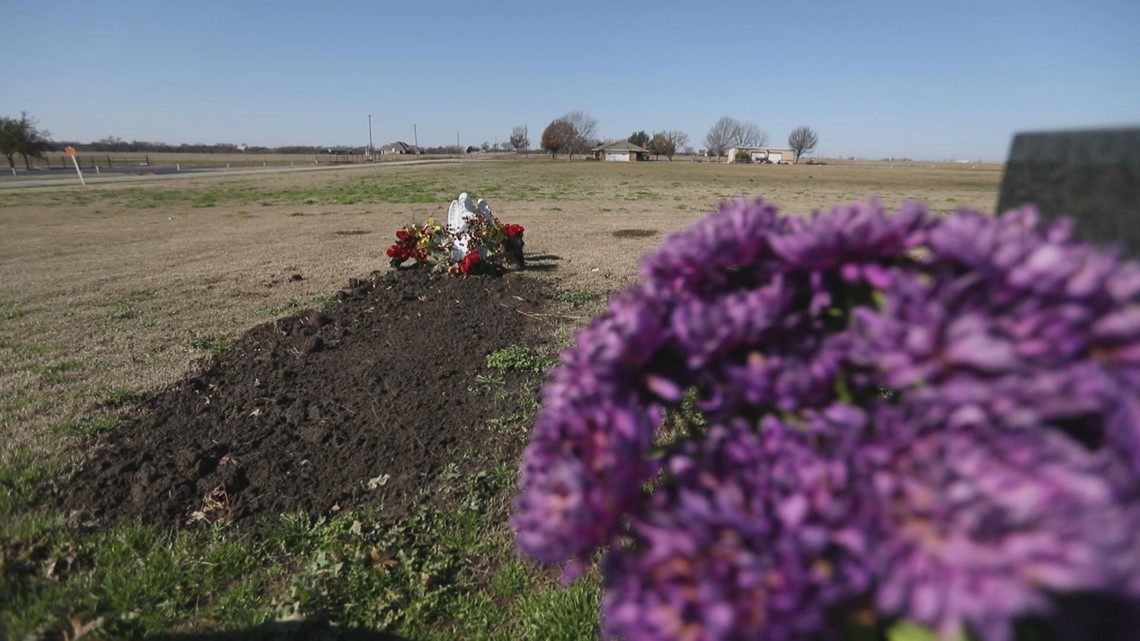
Randy Wimmer told 9NEWS he believes that people should be denied the right to drive after one or two DUIs – but he also acknowledges that is easier said than done.
“How do you do that?” he asked. “It's hard to do. You know that if they're not locked up, how do you stop the drinking? They can take their driver's license away. I guess some of would still drive. I don't know. I know it's hard to do. I don't know what the answer is.”
And there’s the pain of the loss.
“I can't describe to you what's – what we're feeling,” Linda Wimmer said. “I can't describe to you … I know there's a reason for everything, so maybe we don't understand that reason.”
Contact 9NEWS reporter Kevin Vaughan with tips about this or any story: kevin.vaughan@9news.com or 303-871-1862.
RELATED | Is Colorado's felony DUI law working? The struggle to stop repeat offenders from still driving drunk


Glossary of terms
Blood-alcohol content or breath-alcohol content: Both are commonly referred to as BAC. Each is a measurement of weight against volume. When blood is tested, the results are expressed as a measurement of grams of alcohol in 100 milliliters of blood. When breath is tested, the results are expressed as grams of alcohol in 210 liters of breath.
Driving while ability Impaired: Commonly referred to as DWAI, it is the lowest-level charge that can be filed against someone accused of drinking and driving. A person is presumed to be DWAI with a BAC of .05 to .08 while driving. It is a misdemeanor and a conviction can carry a sentence of up to 180 days in jail.
Driving under the influence: Commonly referred to as DUI, it is the more serious of the two charges most often filed against someone accused of drinking and driving. A person is presumed to be DUI with a BAC of .08 or higher while driving. It is a misdemeanor and a conviction can carry a sentence of up to 1 year in jail.
Under 21 drinking and driving: A person under age 21 can be charged with drinking and driving with a blood-alcohol level between .02 and .05. It is a traffic infraction.
Felony DUI: A new law passed by the Colorado Legislature and signed by then-Gov. John Hickenlooper in 2015 made it a felony to be convicted of DWAI or DUI for a fourth or subsequent time. A conviction can carry a prison term of up to six years.
Expressed consent: Anyone who drives in Colorado is presumed to have expressed the consent to submit to roadside tests or a blood or breath test to check for intoxication if requested by a law officer who has probable cause to suspect that person has been drinking and driving.
SUGGESTED VIDEOS | Investigations from 9Wants to Know

